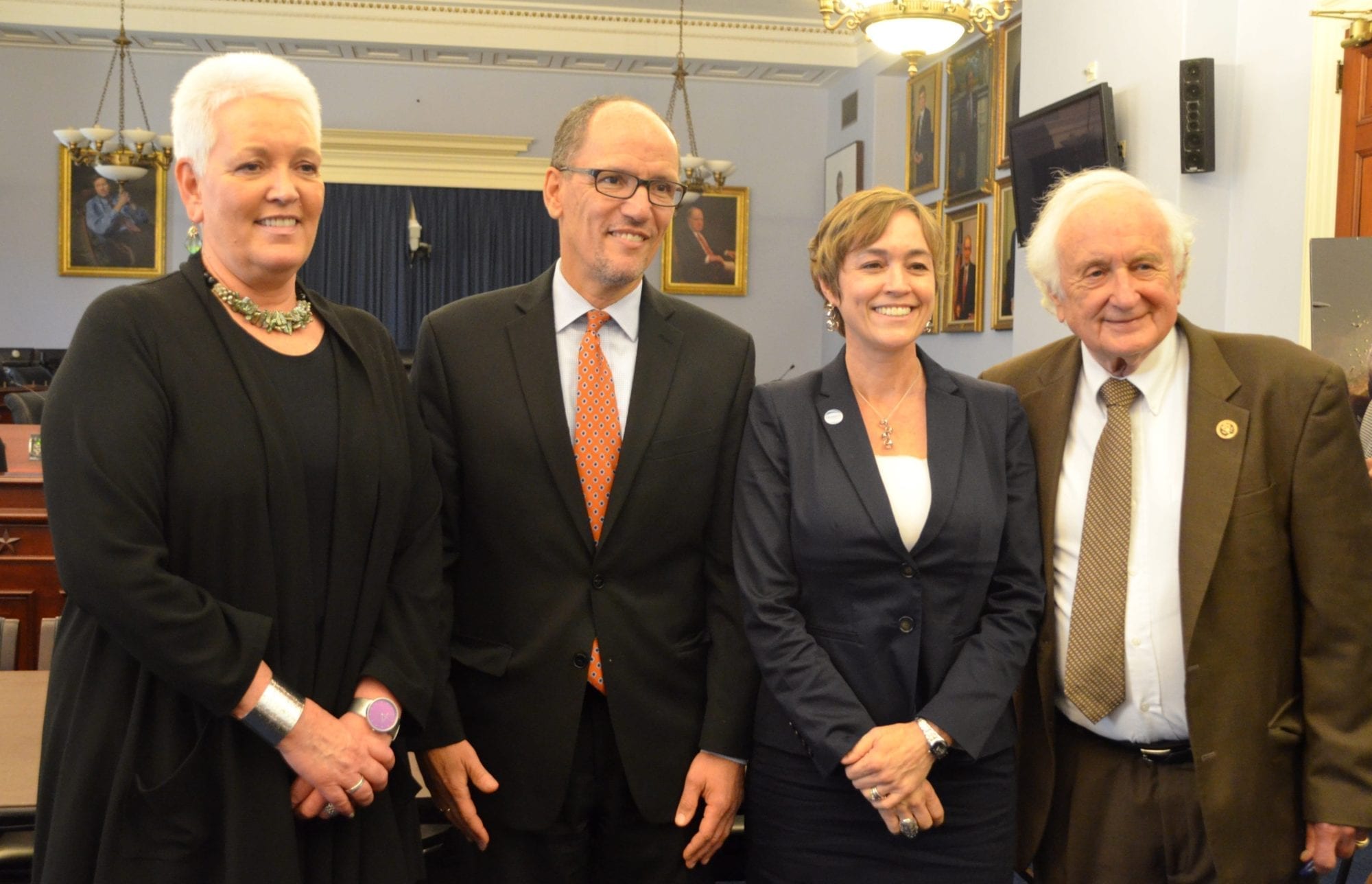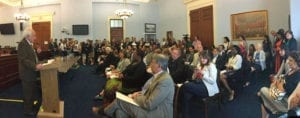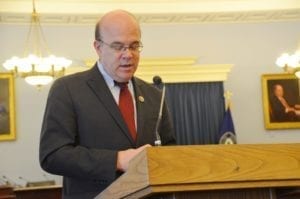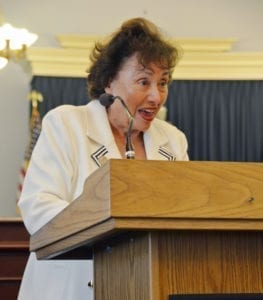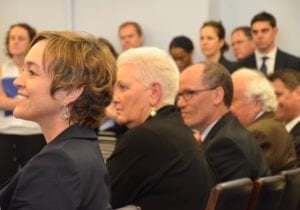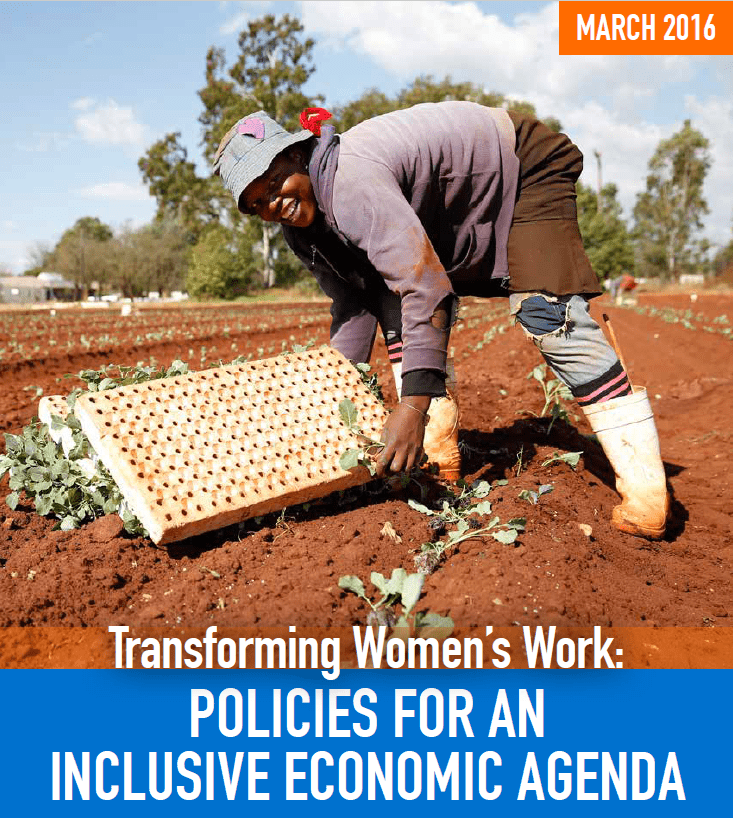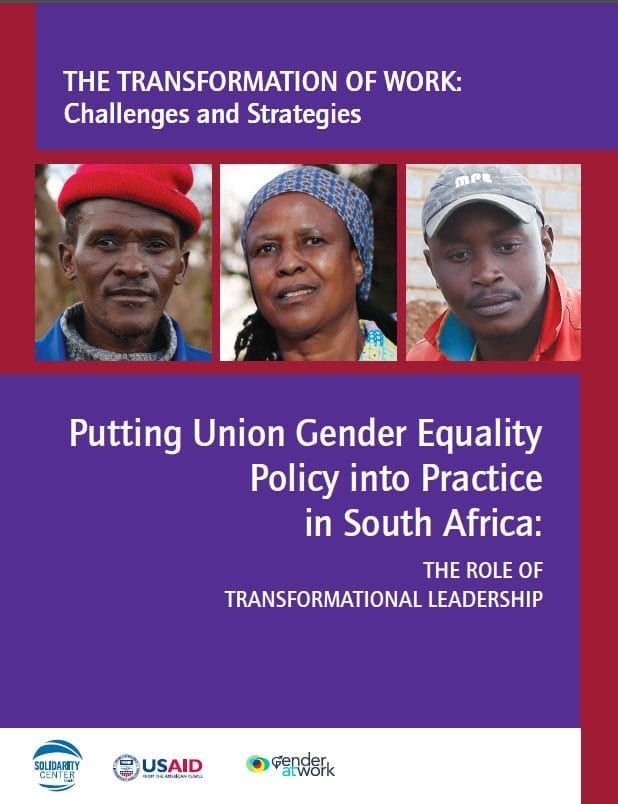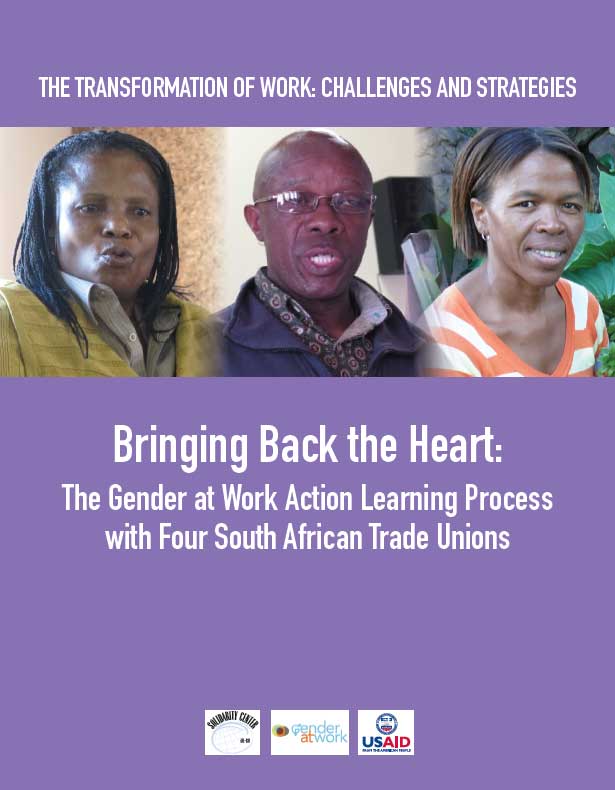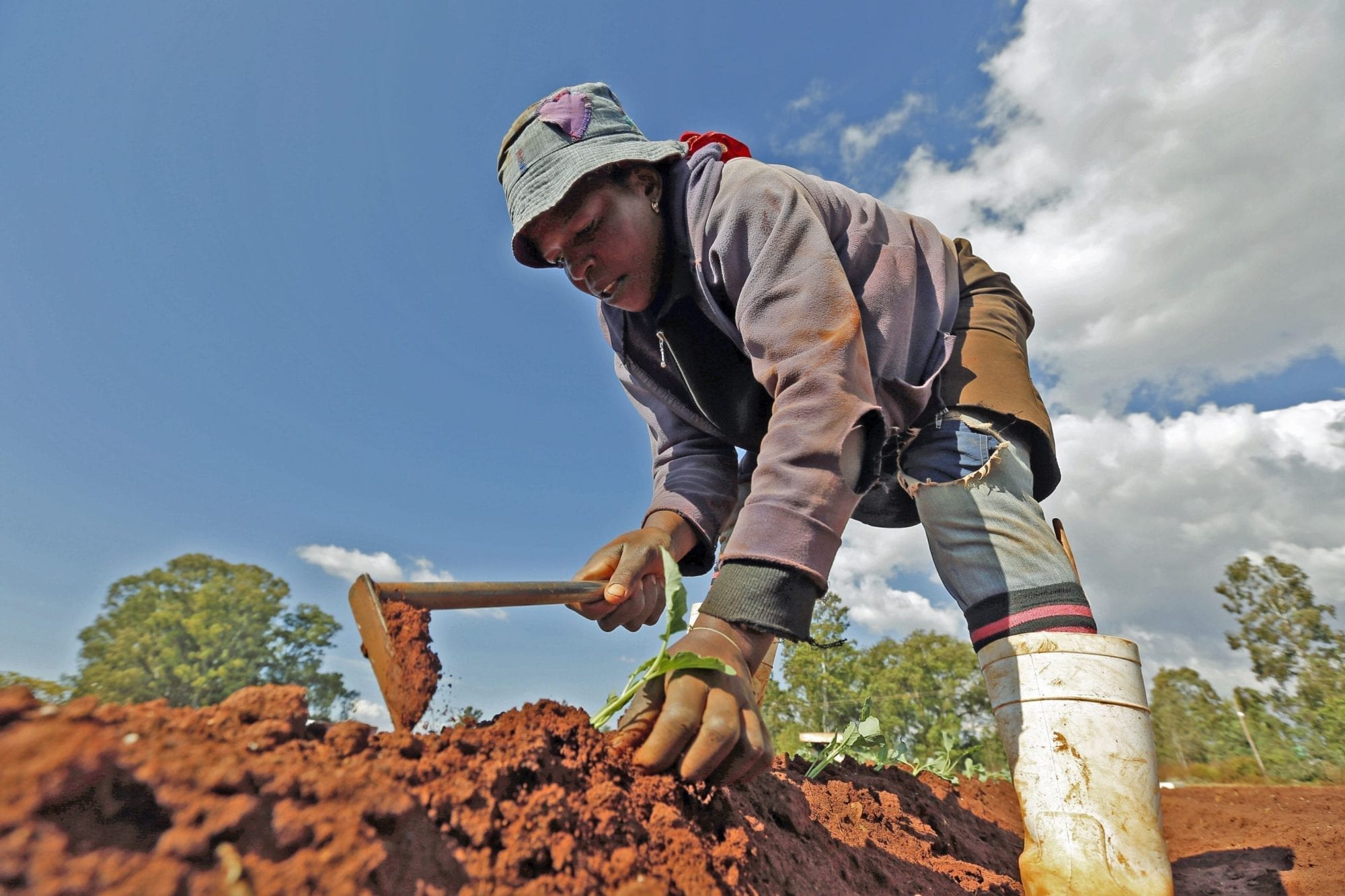
WOMEN@WORK: MAKING BREAKTHROUGHS WITH THEIR UNIONS
Despite modest gains in some regions in the world over the past two decades, women are more likely than men to become and remain unemployed, have fewer chances to participate in the workforce and often must accept dangerous, low-paying jobs, according to Women at Work: Trends 2016, a recent report by the International Labor Organization (ILO).
But when women join together to win living wages and decent working conditions through a union or association, women empower themselves and each other in the struggle for economic fairness for themselves, their families and their communities.
“Labor and community organizing can shift power relationships, change working conditions and address barriers to full and equal participation in the labor market,” according to a new report by the AFL-CIO, Solidarity Center and Rutgers University’s Center for Women’s Global Leadership, “Transforming Women’s Work: Policies for an Inclusive Economic Agenda.”
With Solidarity Center support, women around the world are joining and leading unions, advocating for themselves and their co-workers and standing up for the rights of all workers worldwide.
Despite modest gains in some regions in the world over the past two decades, women are more likely than men to become and remain unemployed, have fewer chances to participate in the workforce and often must accept dangerous, low-paying jobs, according to Women at Work: Trends 2016, a recent report by the International Labor Organization (ILO).
But when women join together to win living wages and decent working conditions through a union or association, women empower themselves and each other in the struggle for economic fairness for themselves, their families and their communities.
“Labor and community organizing can shift power relationships, change working conditions and address barriers to full and equal participation in the labor market,” according to a new report by the AFL-CIO, Solidarity Center and Rutgers University’s Center for Women’s Global Leadership, “Transforming Women’s Work: Policies for an Inclusive Economic Agenda.”
With Solidarity Center support, women around the world are joining and leading unions, advocating for themselves and their co-workers and standing up for the rights of all workers worldwide.
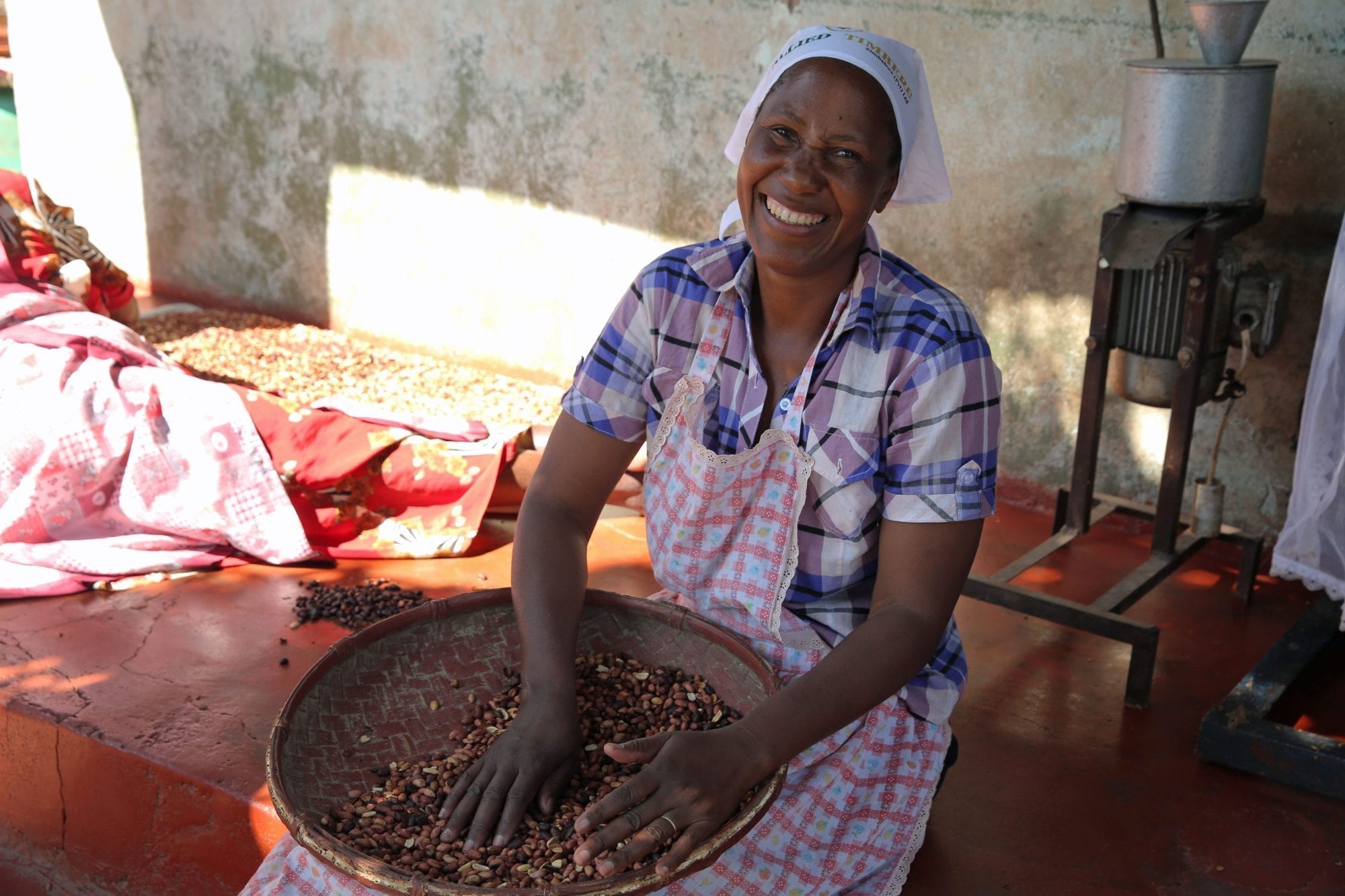
Nyaradzo Tavarwisa makes and sells peanut butter for her home-based business, Dovi World in Chitungwiza, Zimbabwe. Nyaradzo, a member of the Zimbabwe Chamber of Informal Economy Associations (ZCIEA), a Solidarity Center ally, helps other women ZCIEA members learn the skills involved in the small business. Credit: Solidarity Center/Jemal Countess
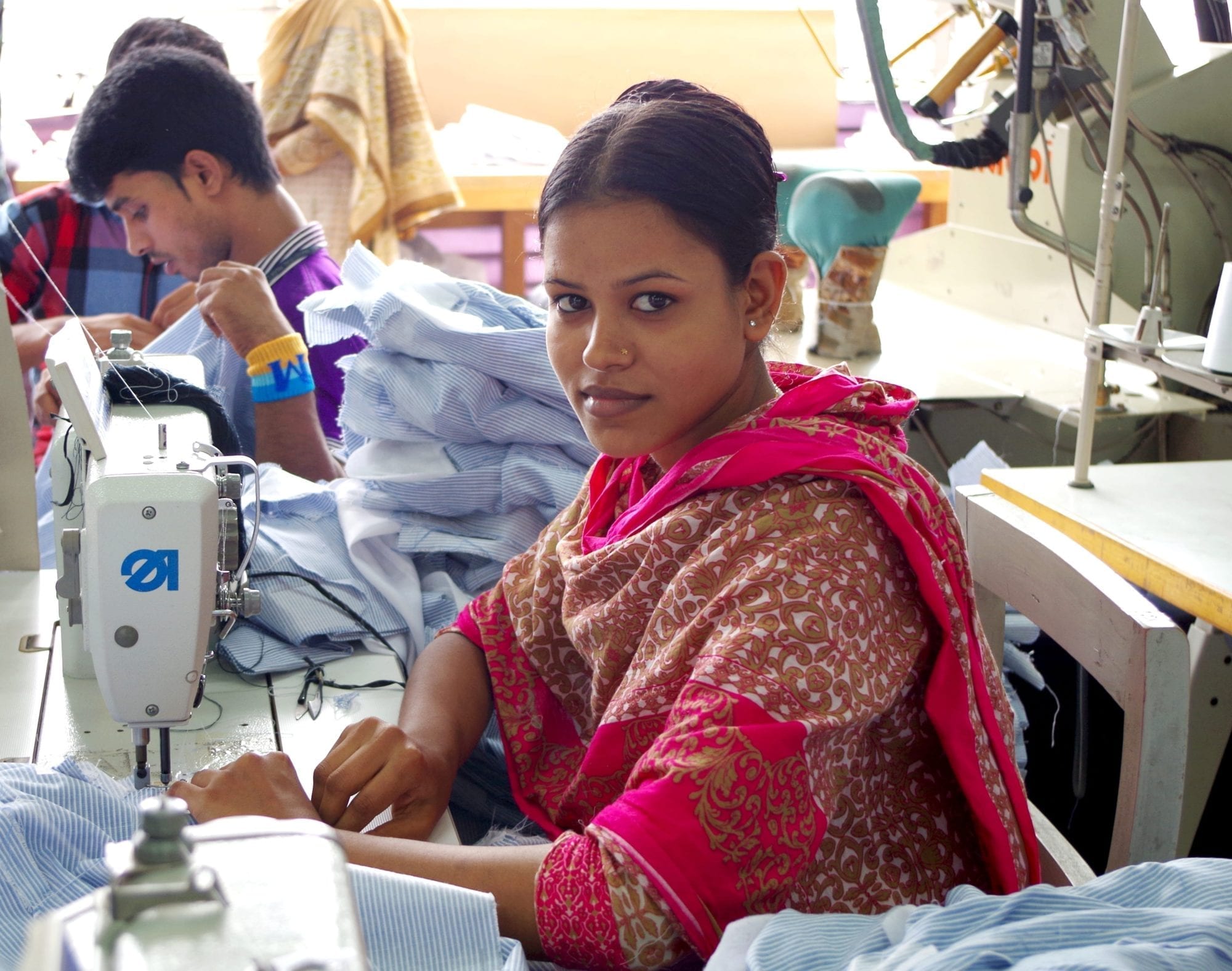
Bangladesh garment worker Rina operates a sewing machine at Aliza Fashions Ltd. Rina and her co-workers are among dozens of workers throughout the garment industry who have taken part in Solidarity Center fire safety trainings. Credit: Solidarity Center/Balmi Chisim
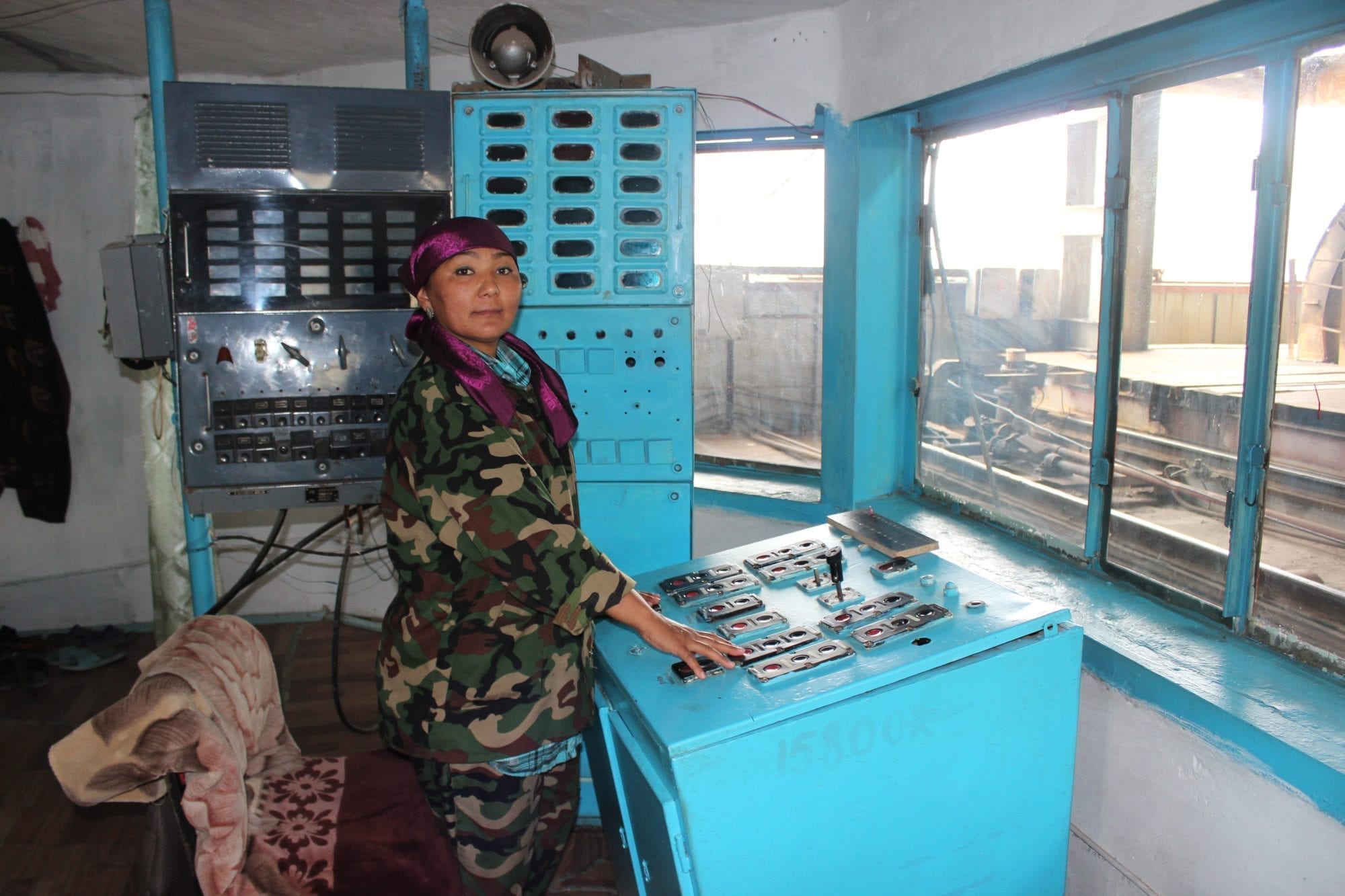
This photo of a winding machine driver and construction union member in Kyrgyzstan is among winning images in a 2016 International Women’s Day contest held by the Center on Labor Relations Research (CISTO). Winning photographs from the event, co-sponsored by the Solidarity Center, were on display at the Federation of Trade Unions of Kyrgyzstan. Credit: Djanaliev Nazar
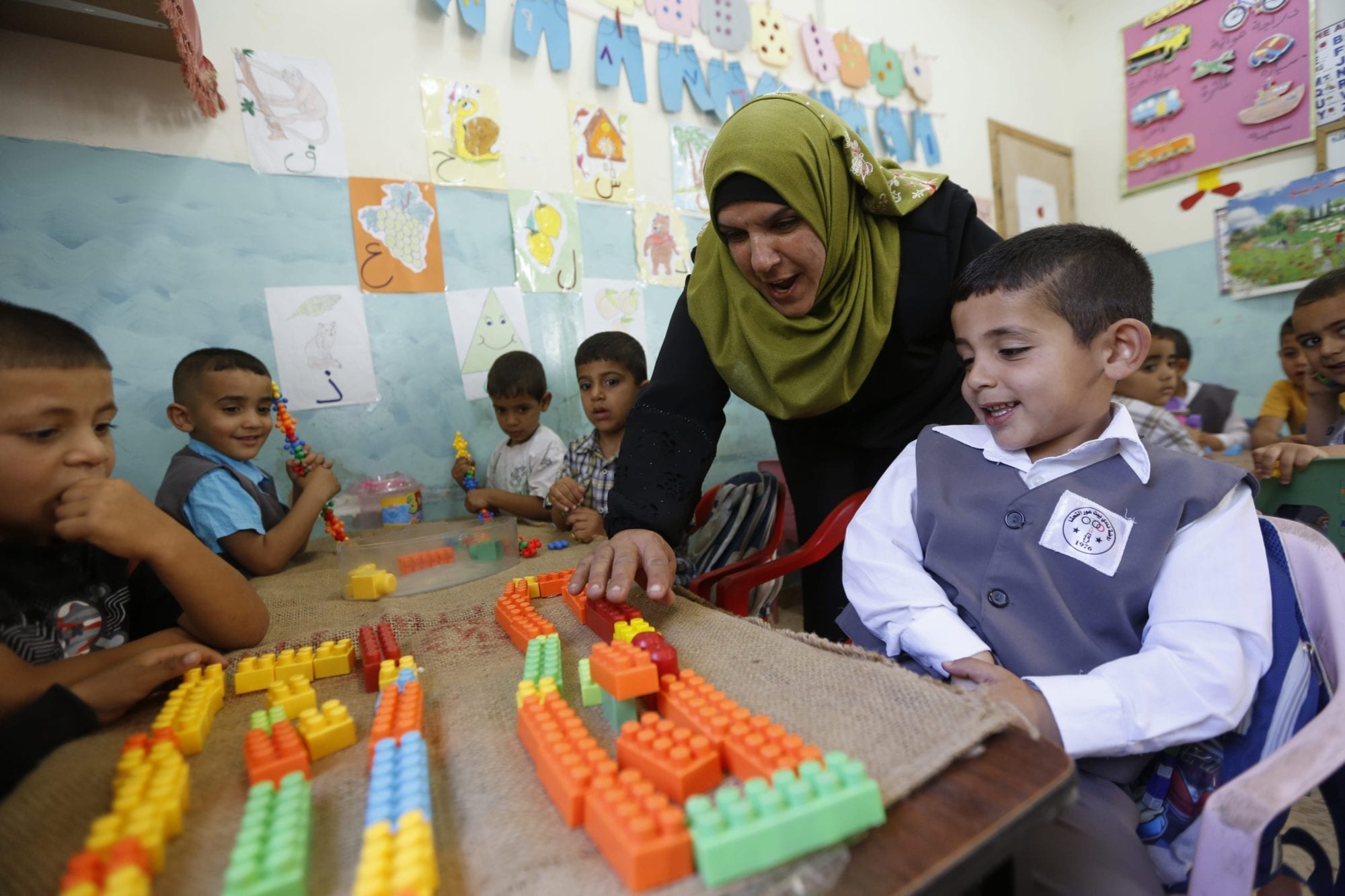
Kindergarten teacher Khadeja Othman holds a bachelor’s degree from Al Yarmouk University in Jordan and teaches in Ramallah’s Bet Our Al Tahta village. As a member of the Palestine General Federation of Trade Unions, Othman has taken part in many training workshops sponsored by her union and the Solidarity Center. Credit: Solidarity Center/Alaa Salih
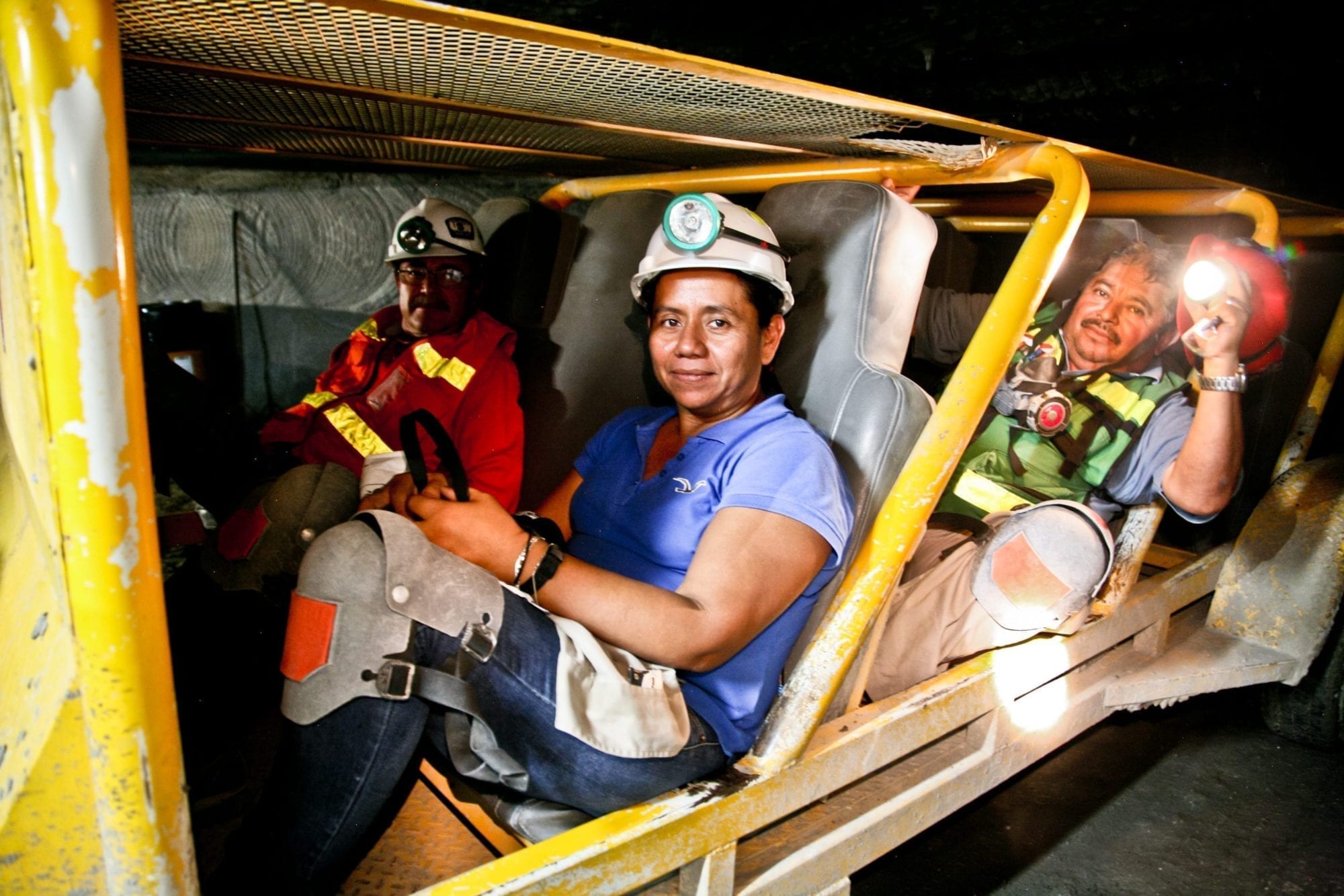
A single mother of three and a union steward with the mine workers union, Ruth Rivera, 45, travels through the Fénix mine in La Paz, Mexico. With Solidarity Center support, Rivera and her female co-workers formed Women Miners of Steel to give women a greater voice at the workplace. Credit: Solidarity Center/Robert Armocida
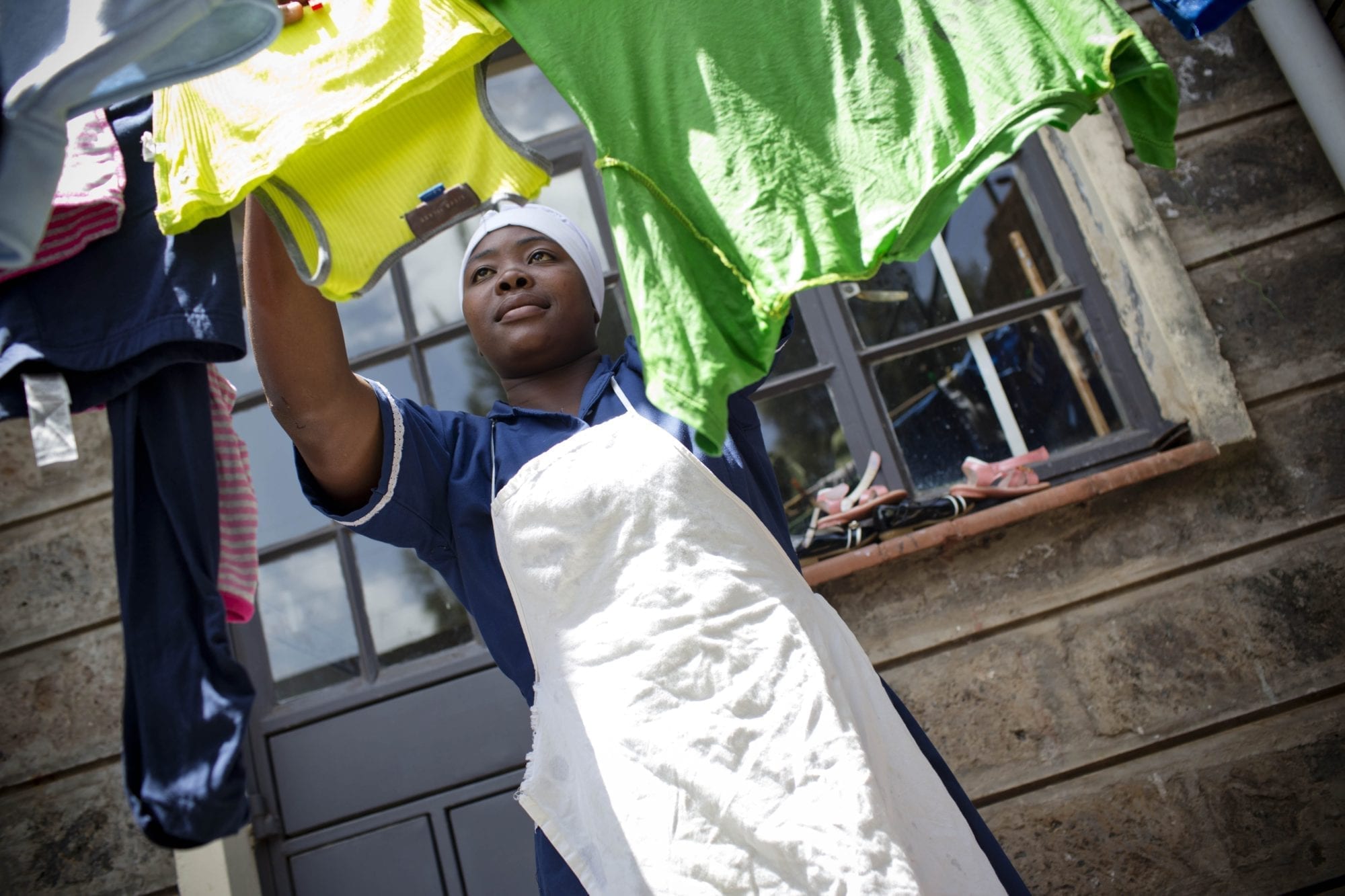
Lucy Nyangasi, 26, a domestic worker in Nairobi is a member of the Kenya Union of Domestic, Hotel, Educational Institutions, Hospitals and Allied Workers (KUDHEIHA), which is helping informal economy workers get rights on the job. Credit: Solidarity Center/Kate Holt
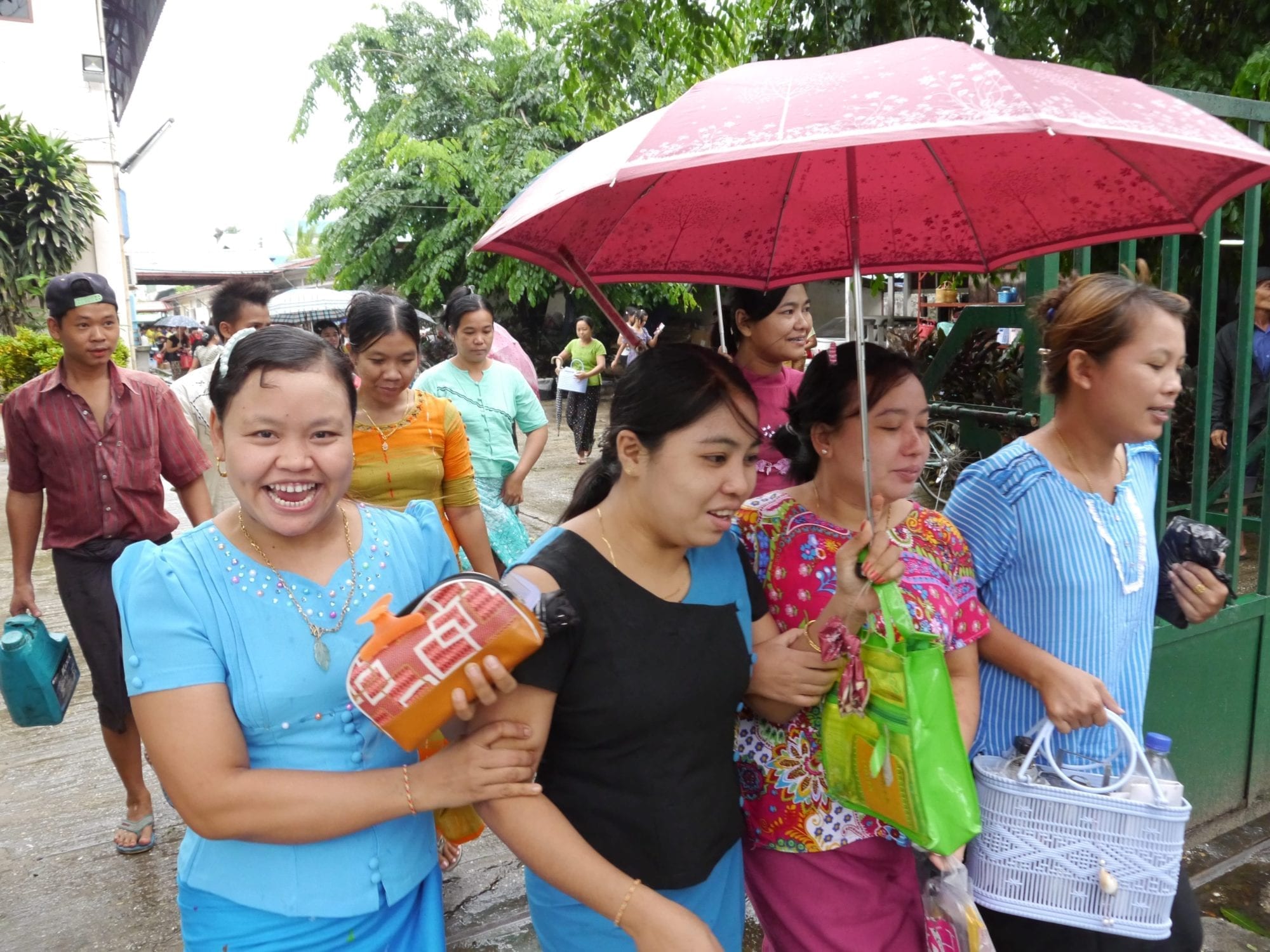
Thein Thein Aye, 23 and Khin Thit Lwin, 30, work at Shwe Mi Plastics Factory in Yangoon, where they are paid $135 per month. Both moved to the city from their villages, where jobs are scarce, and recently joined the Confederation of Trade Unions of Myanmar, a long-time Solidarity Center ally. Credit: Solidarity Center/Jeanne Hallacy
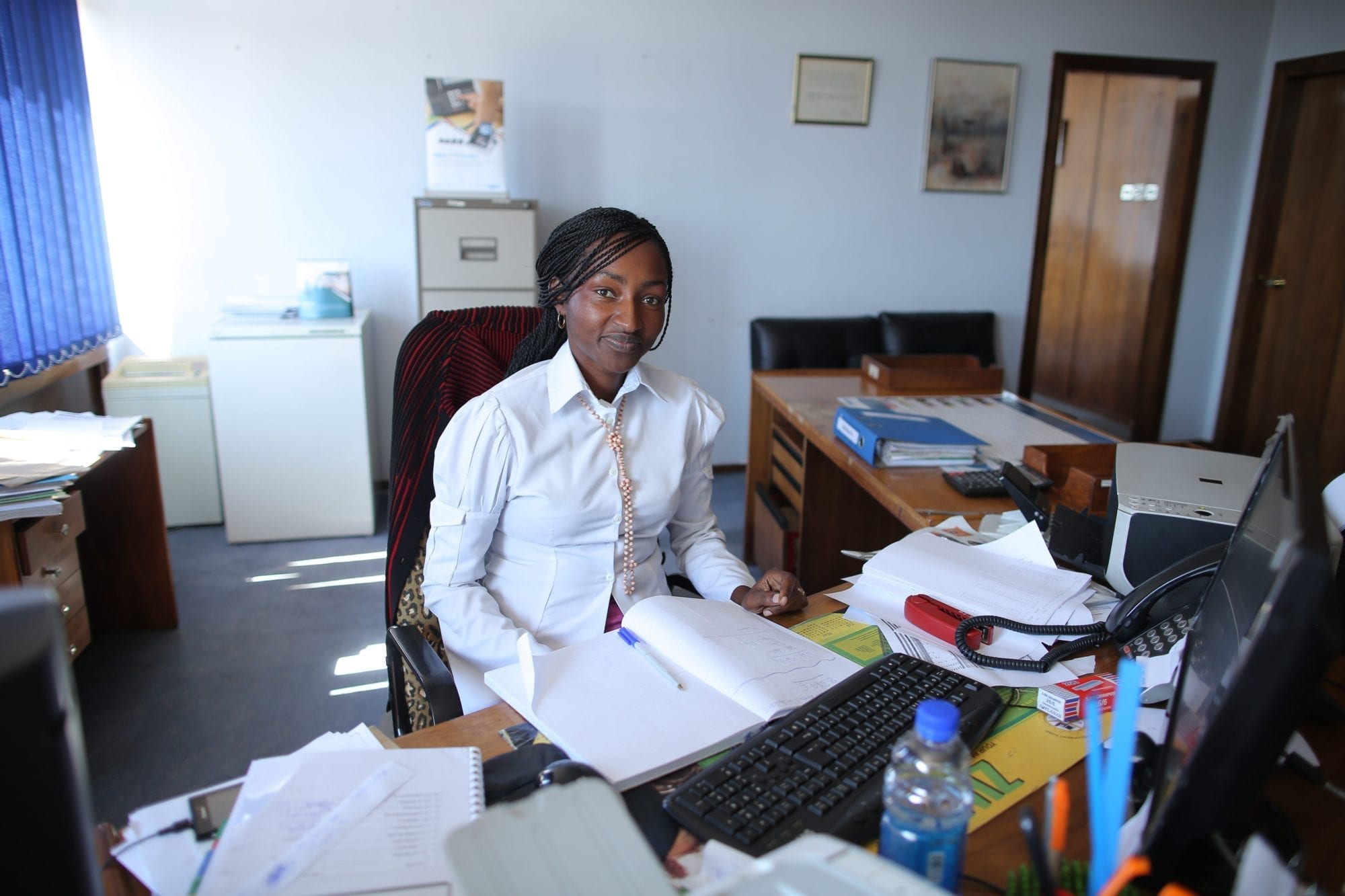
In Harare, where Dzidai Magada Mwarozva is director of Human Resources at Destiny Electronics, the National Union of Metal and Allied Industries in Zimbabwe (NUMAIZ), a Solidarity Center partner, represents office workers and truck drivers. Credit: Solidarity Center/Jemal Countess
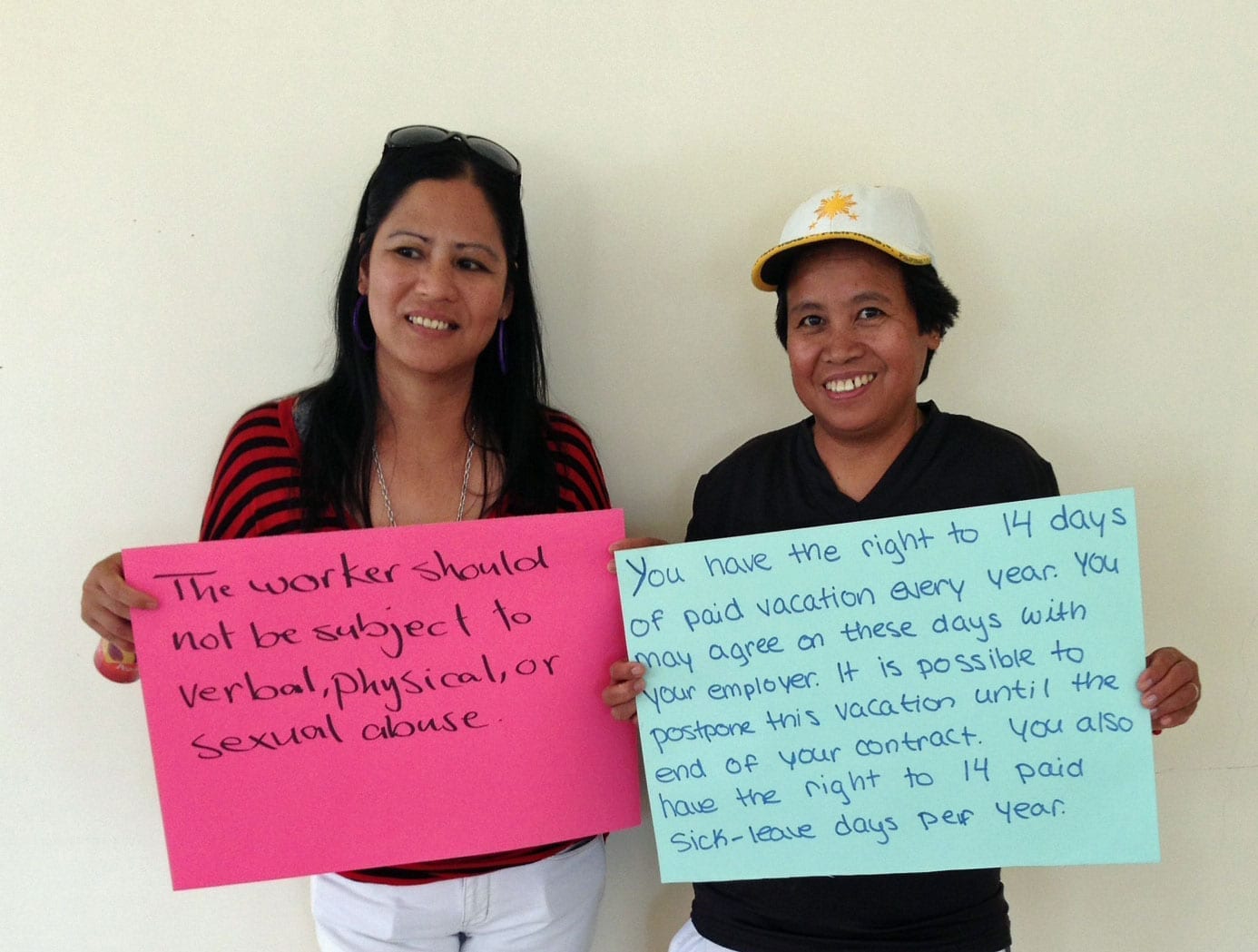
Filipina domestic workers who migrated to Jordan for work demonstrate their rights under Jordanian law after taking part in a Solidarity Center-sponsored workshop on combatting trafficking in persons. Credit: Solidarity Center/Francesca Ricciardone
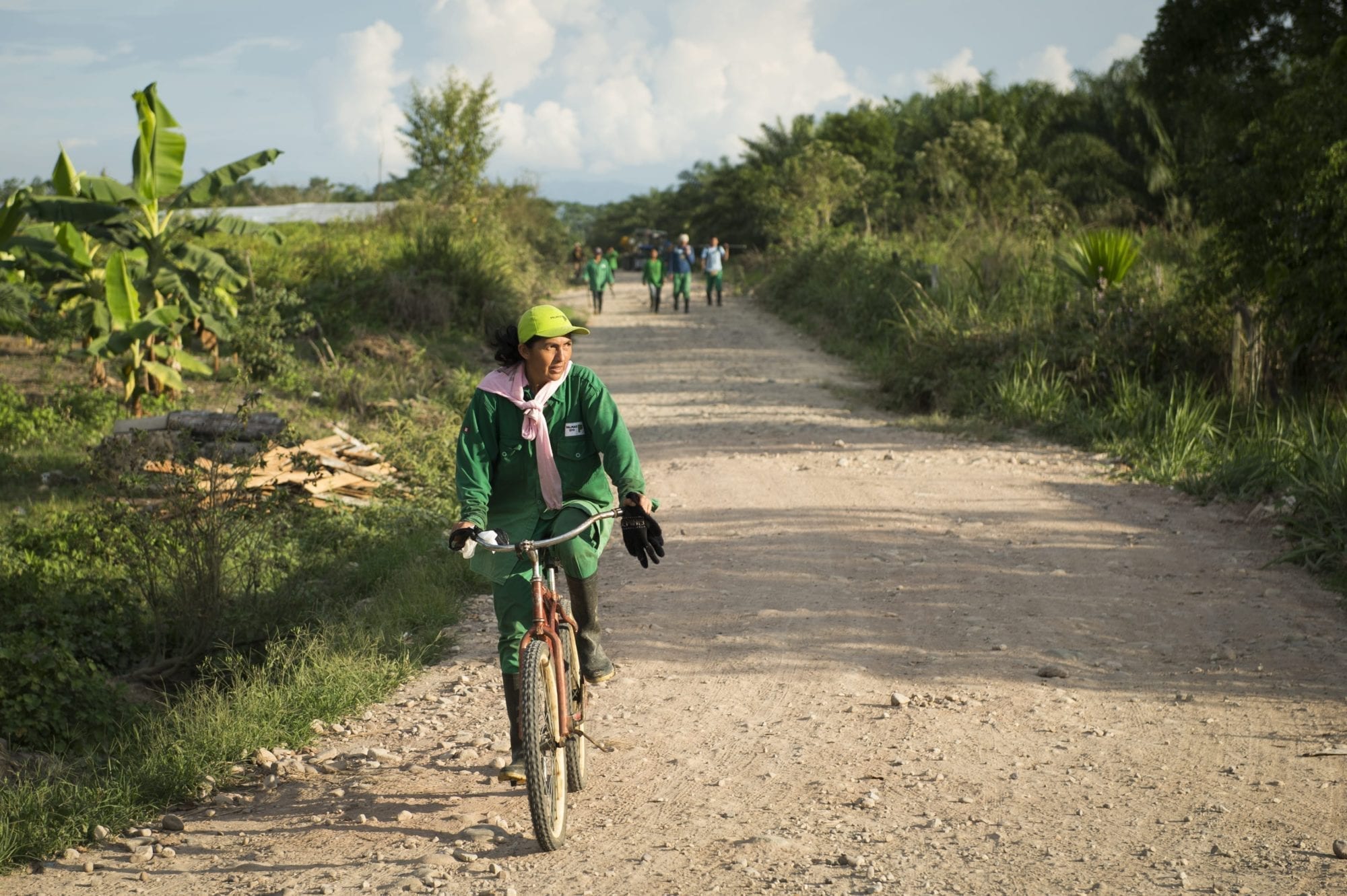
Palm oil workers in San Martin, Peru, bike the Palma del Espino planation where they work and live with their families. The workers in San Martin are represented by two unions, and the Solidarity Center works with them to provide training and education for worker support on the job. Credit: Solidaity Center/Oscar Durand
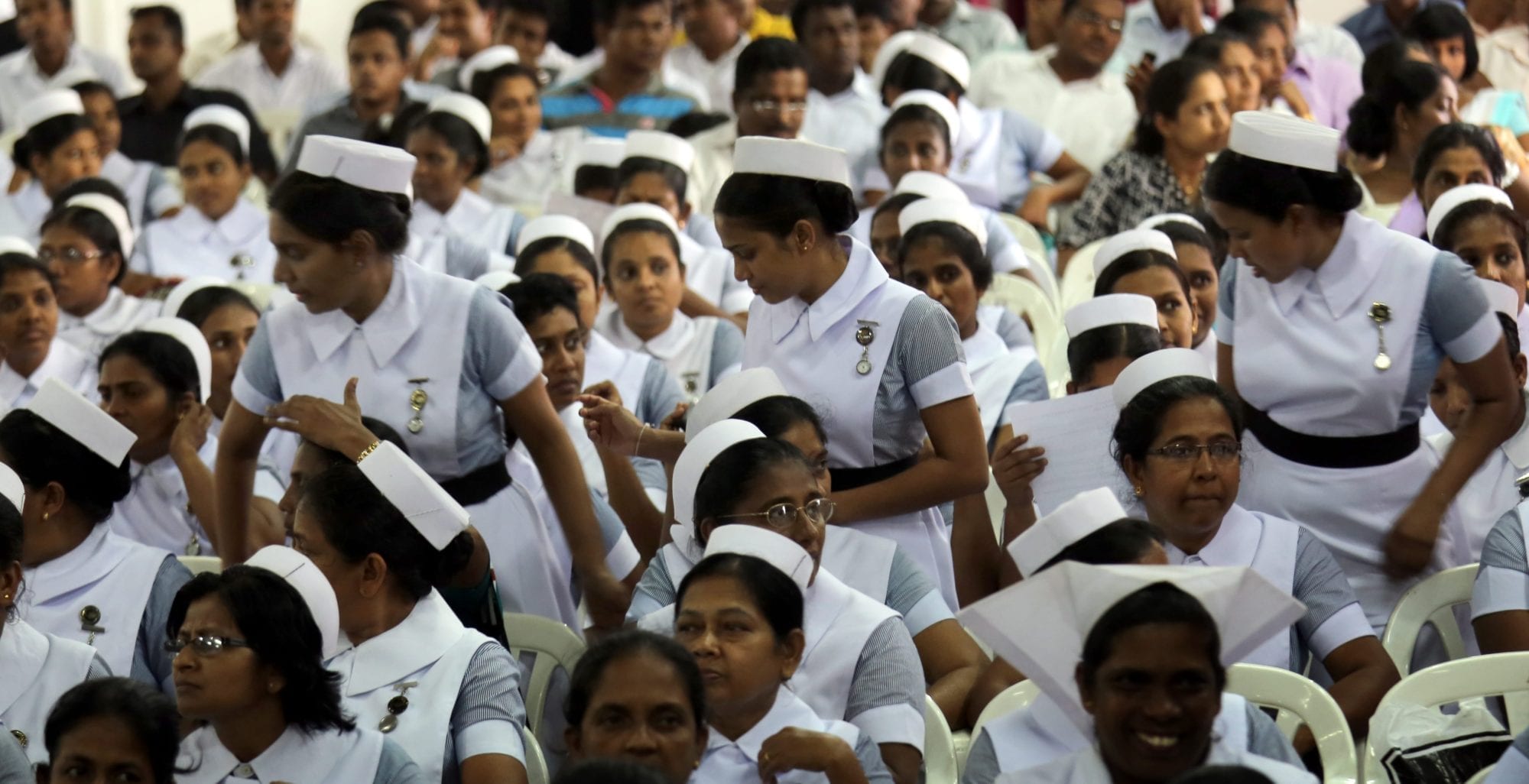
In Sri Lanka, nurses have a voice on the job through the Government Nursing Officers Association (GNOA), a Solidarity Center ally. Credit: Solidarity Center/Pushpa Kumara
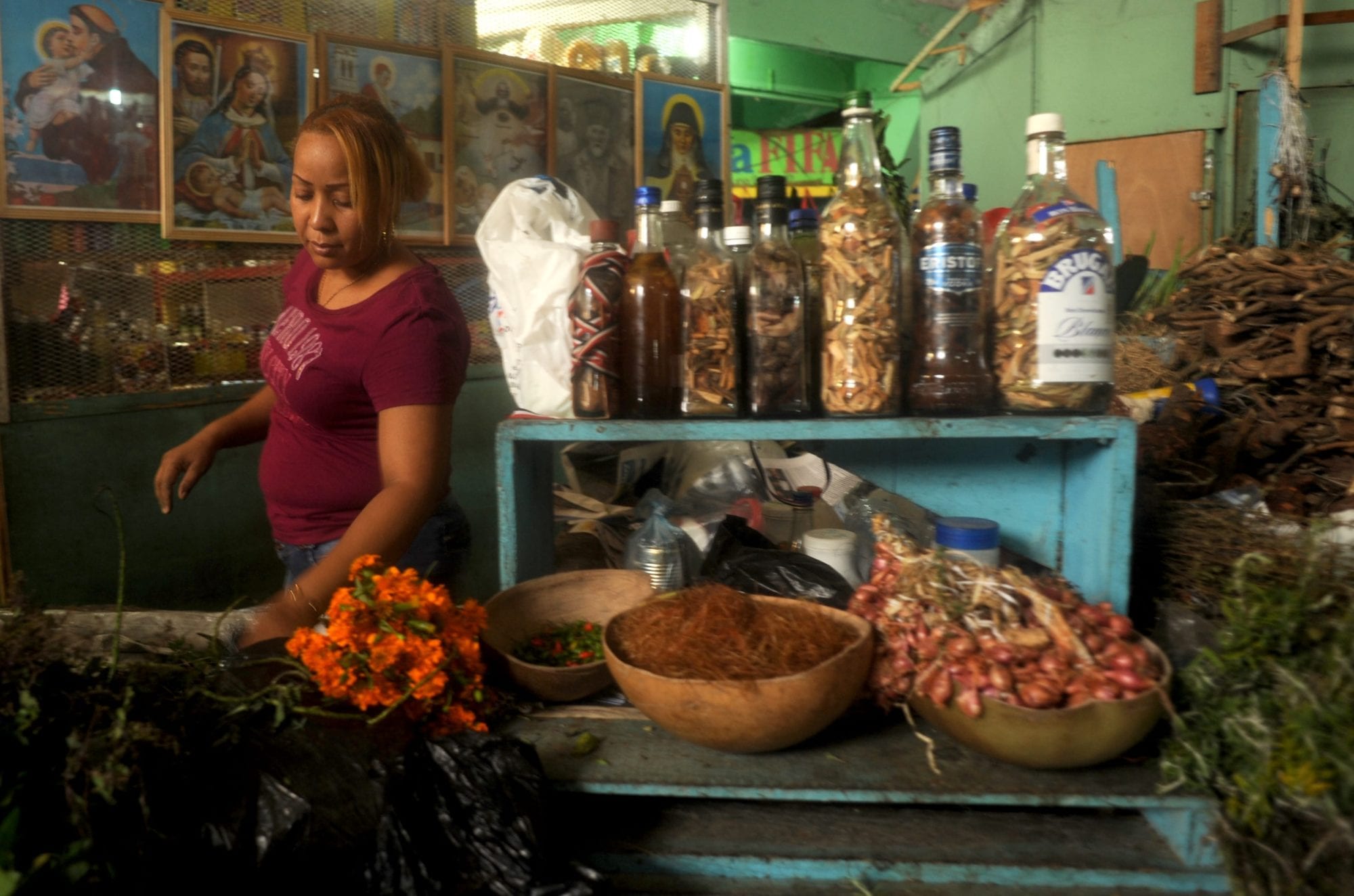
Marisol Rodriguez, who sells medicinal herbs at a San Cristobal market in the Dominican Republic, is among street informal economy workers the Solidarity Center reaches in 35 countries through training to build economic empowerment. Credit: Ricardo Rojas/Solidarity Center
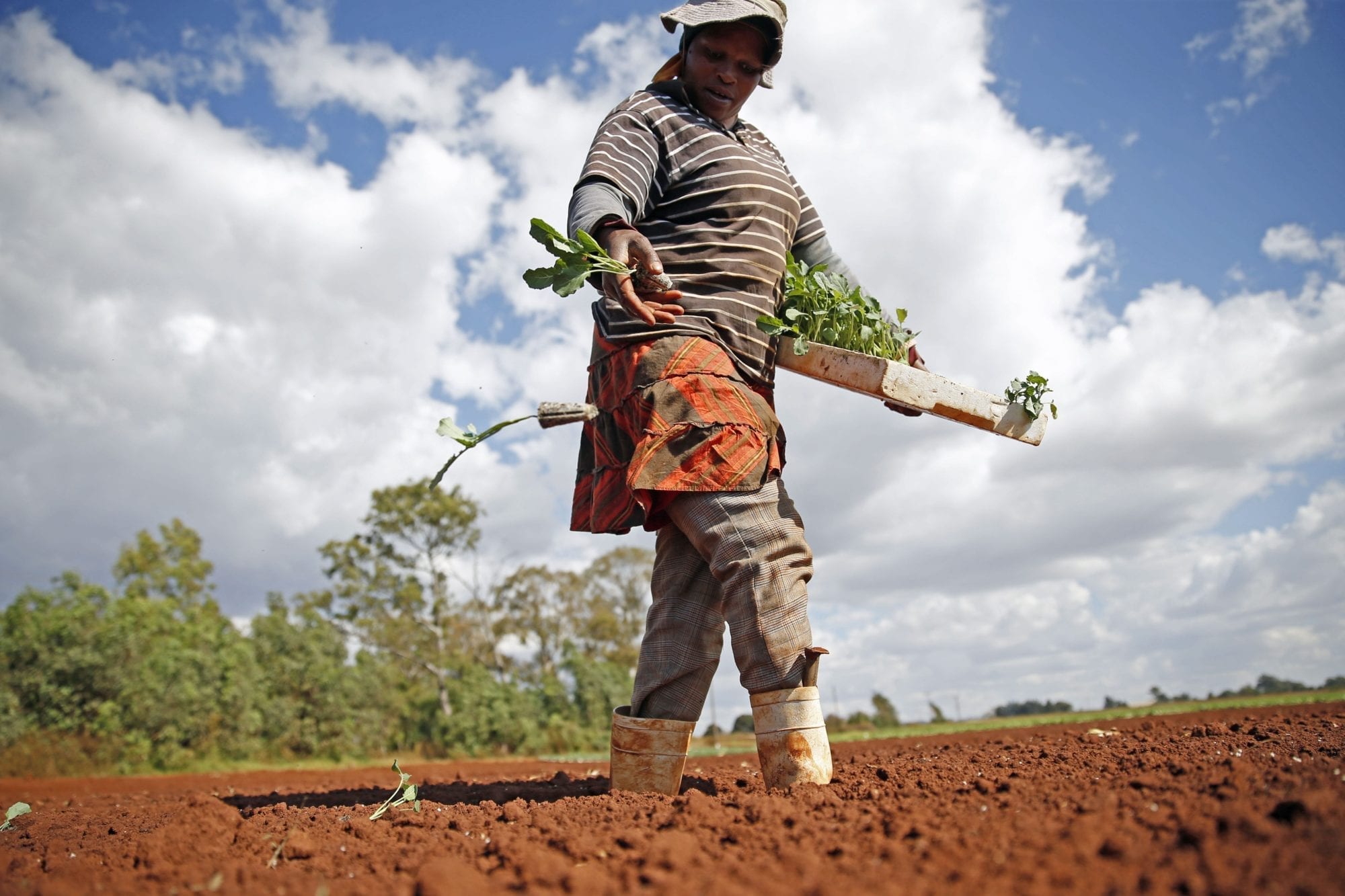
Rural women contribute roughly half of the world’s food, and are especially vulnerable to workplace exploitation. In South Africa, cabbage planters and other farm workers have a voice on the job through the Food and Allied Workers Union. Credit: Solidarity Center/Jemal Countess
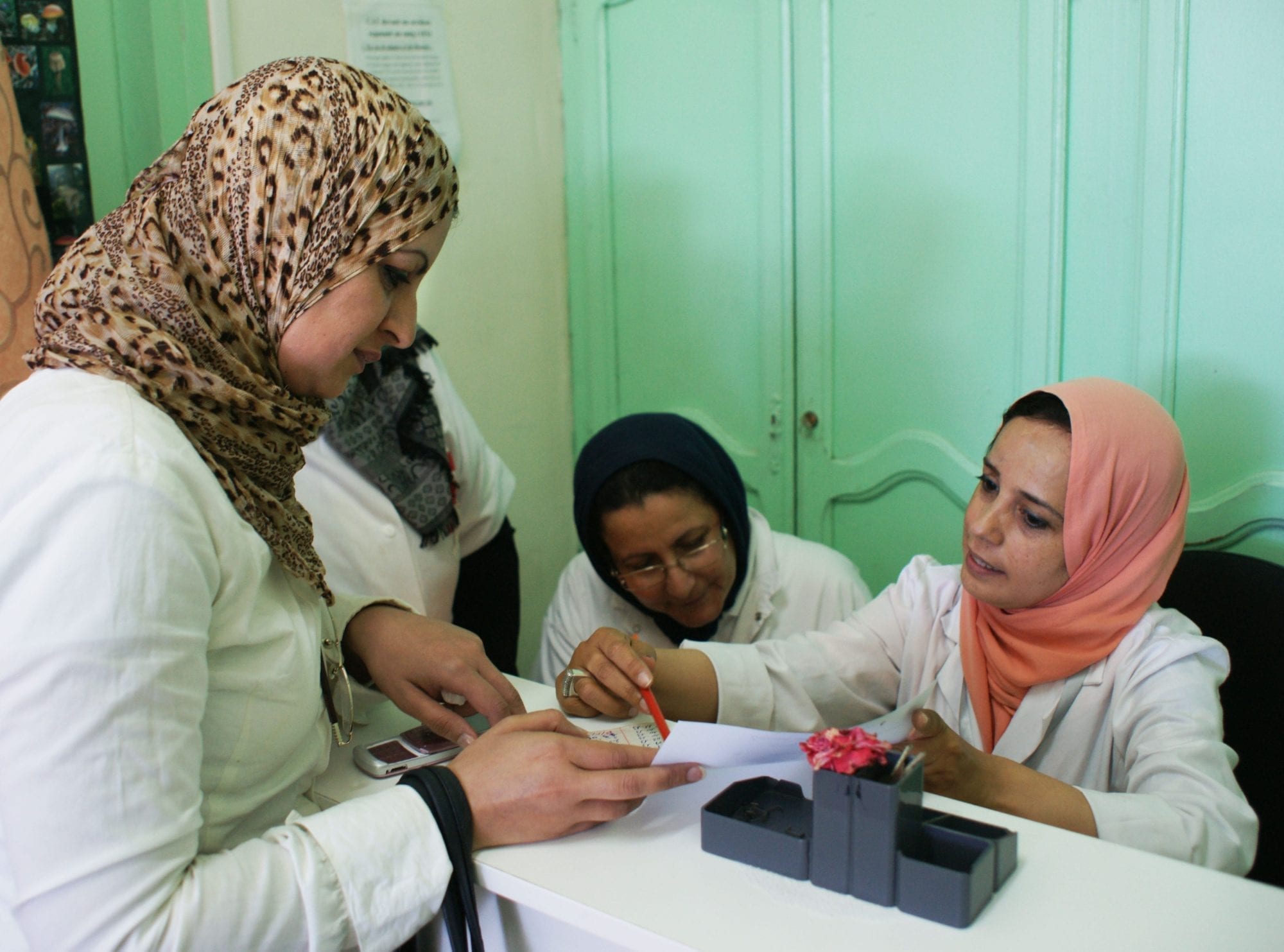
Algerian nurses at the Hôpital Ben Aknoun are represented by SNAPAP, the country’s largest public-employee union. The Solidarity Center supports SNAPAP’s work with unemployed youth, marginalized and vulnerable women workers and contract (temporary) workers. Credit: Solidarity Center/Zoubir Aksouh

